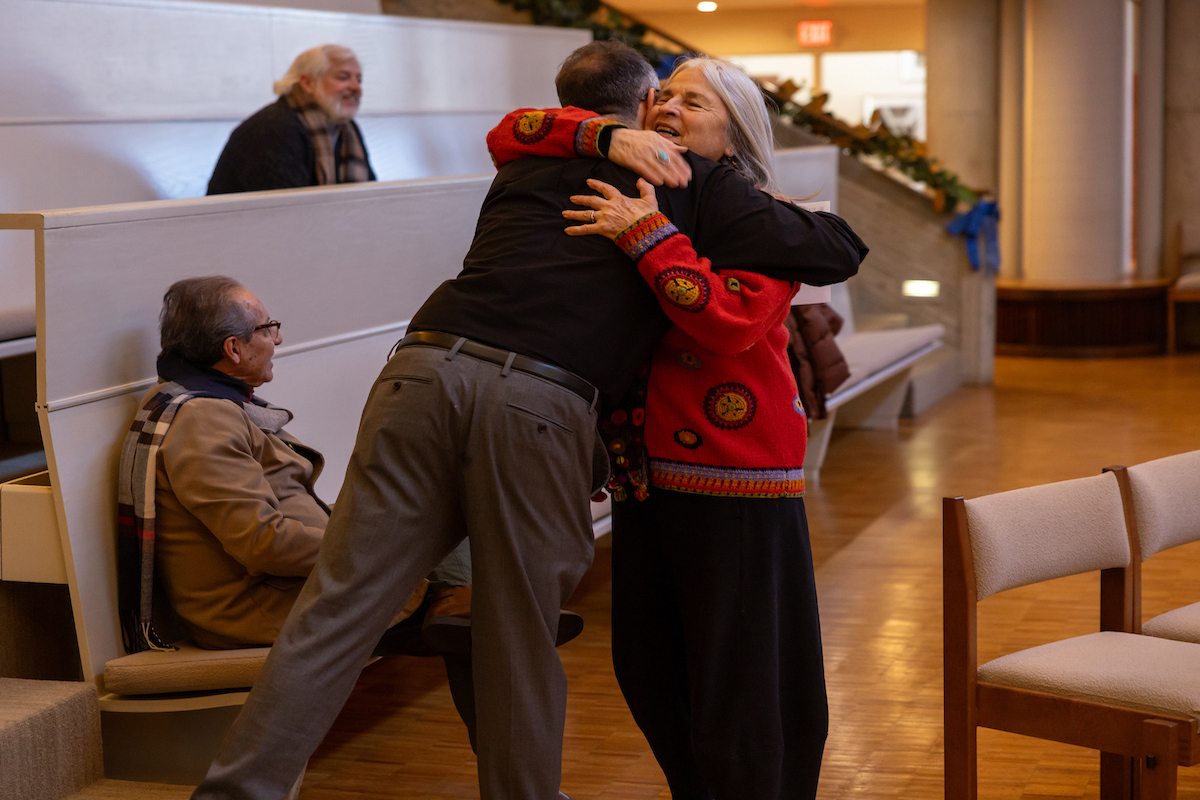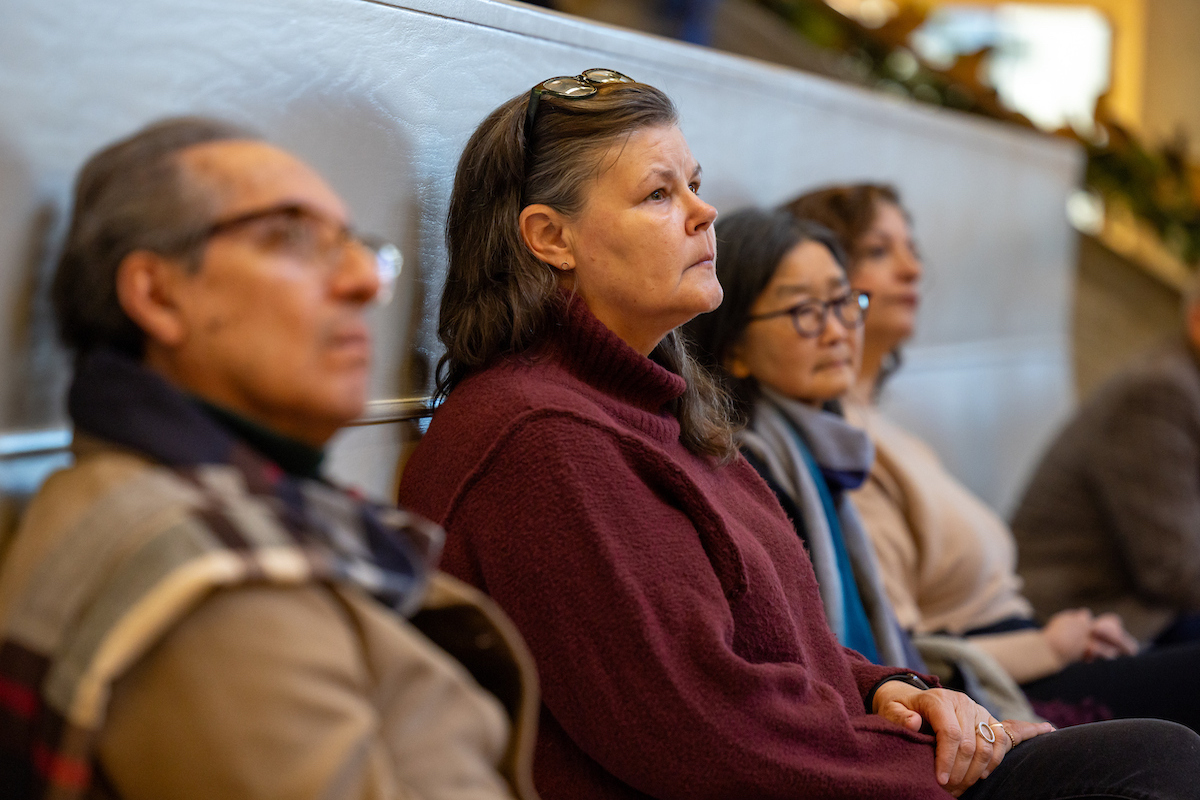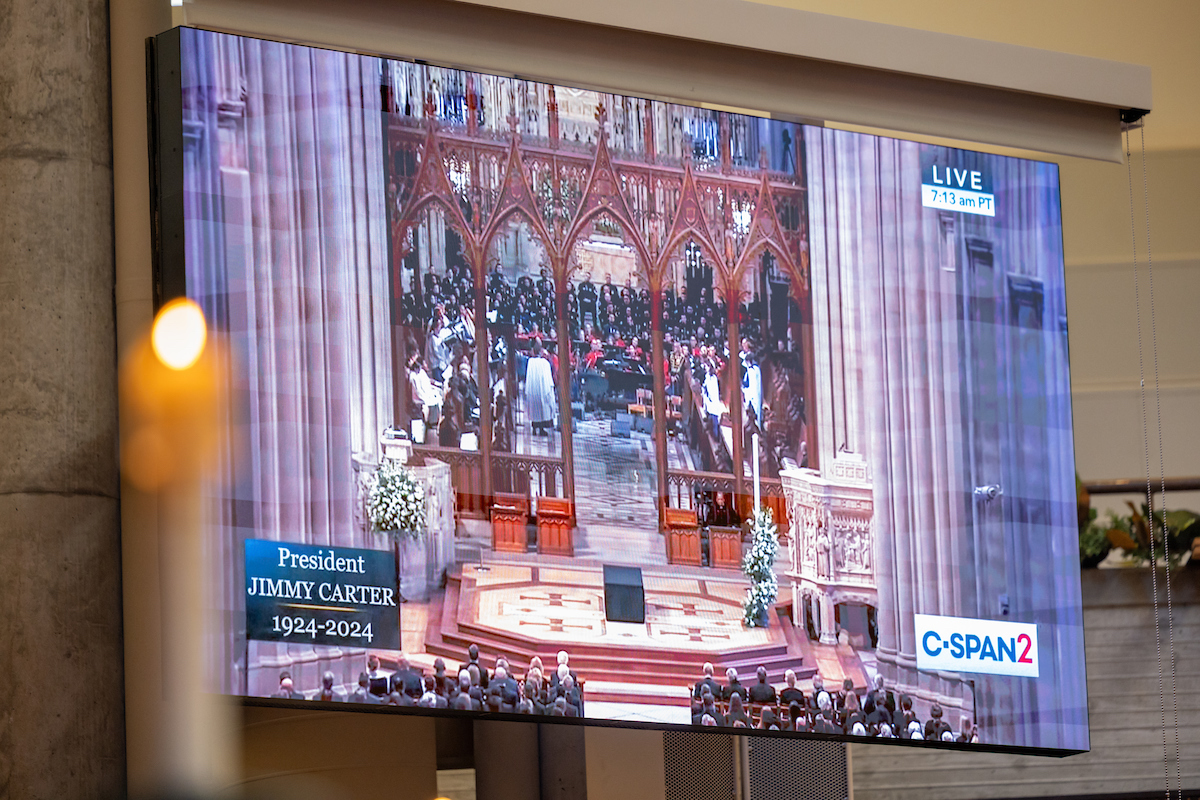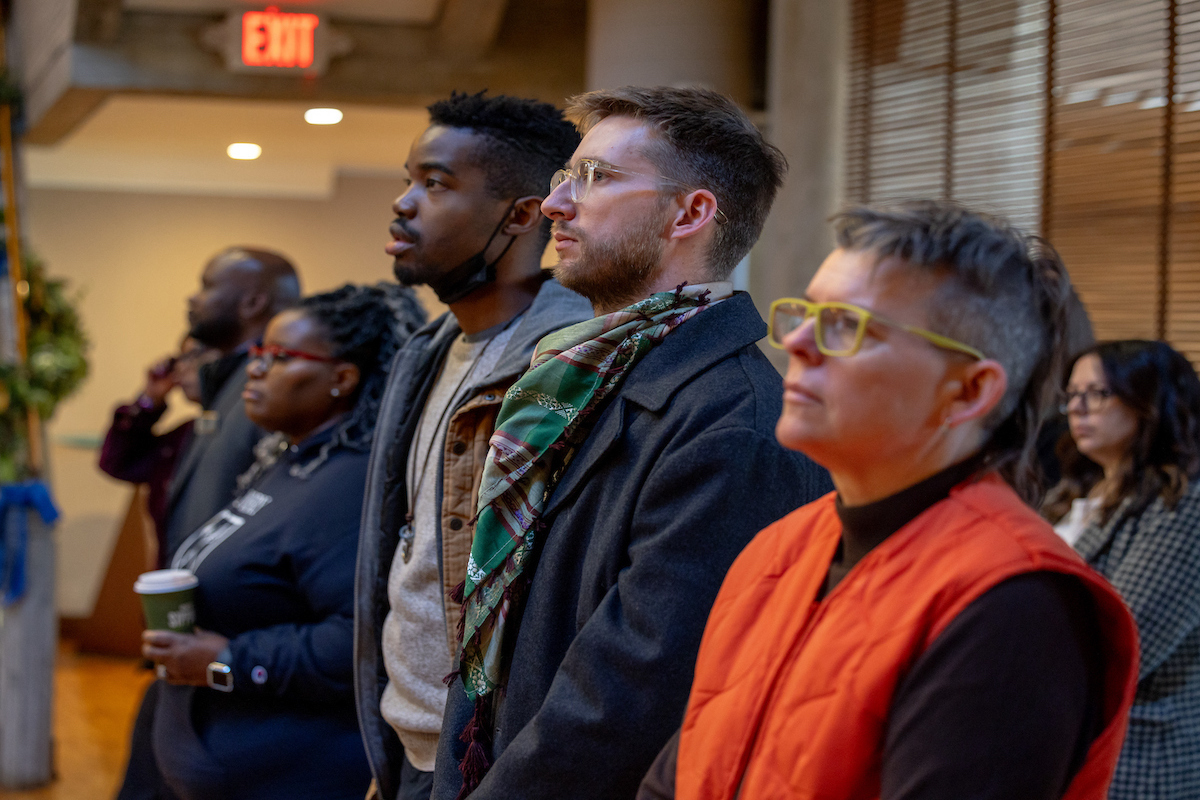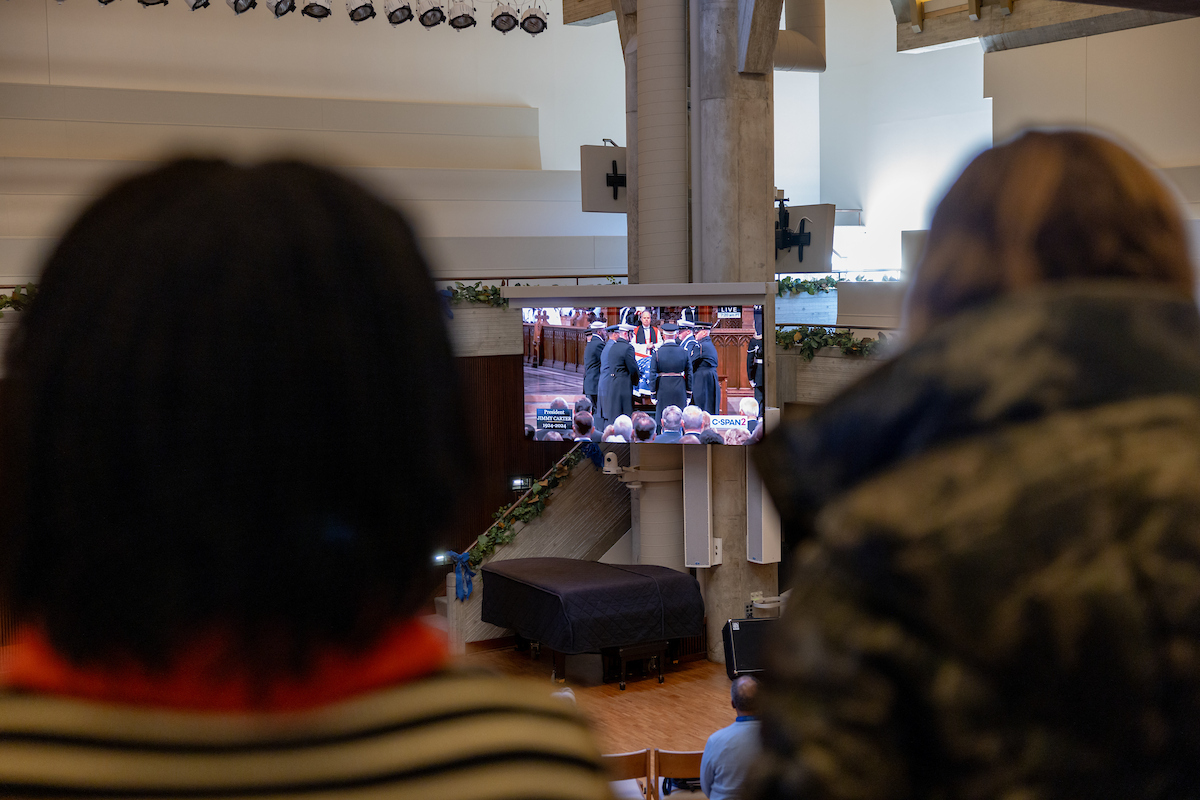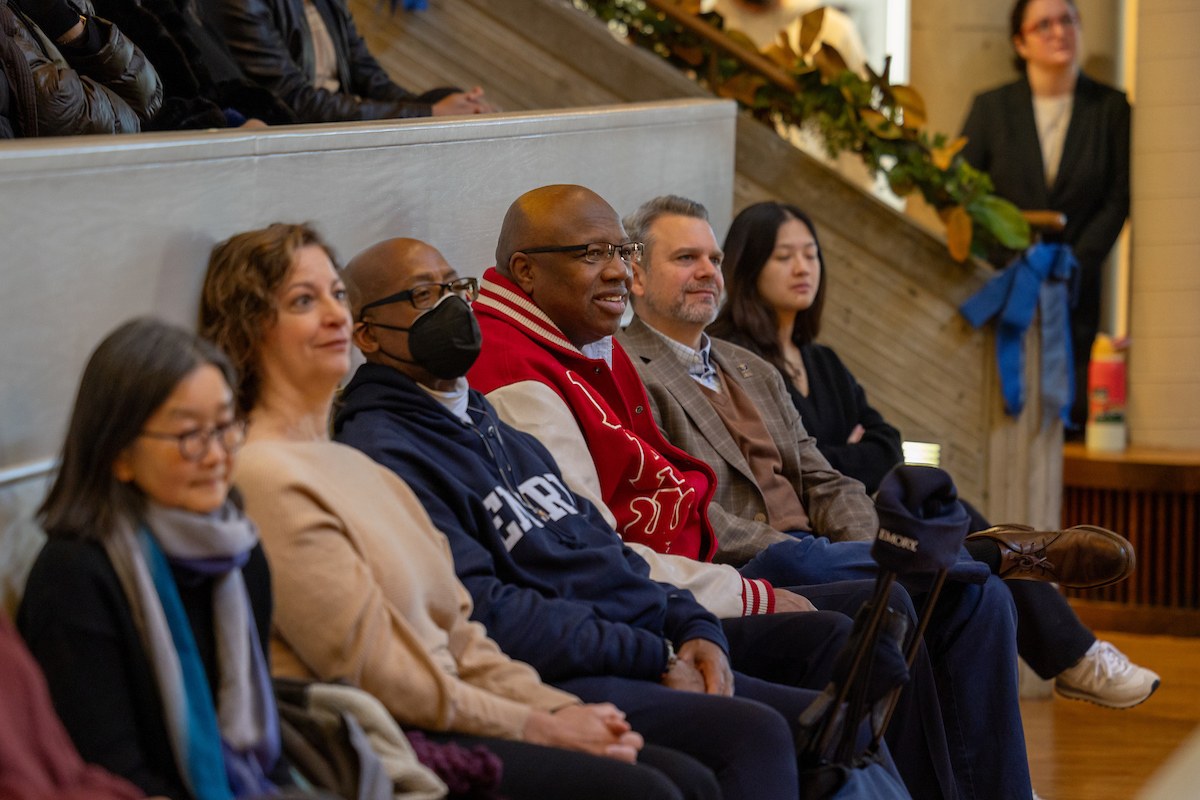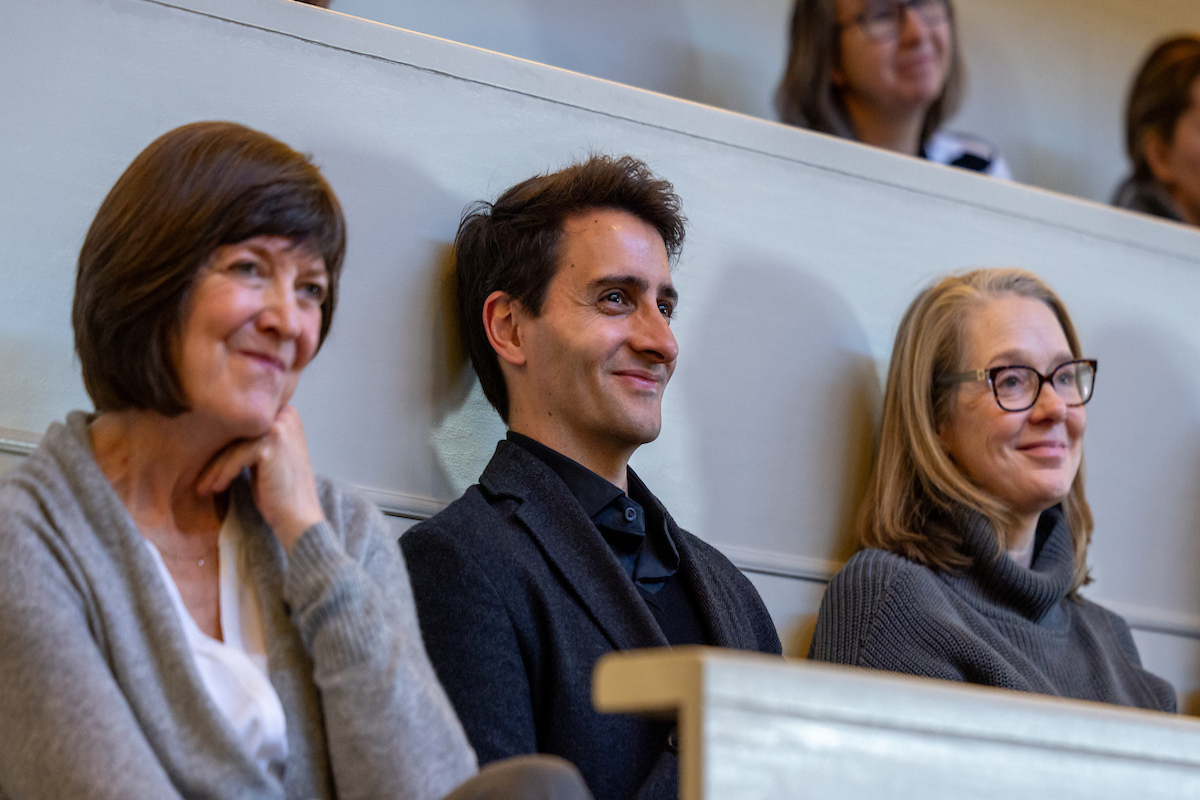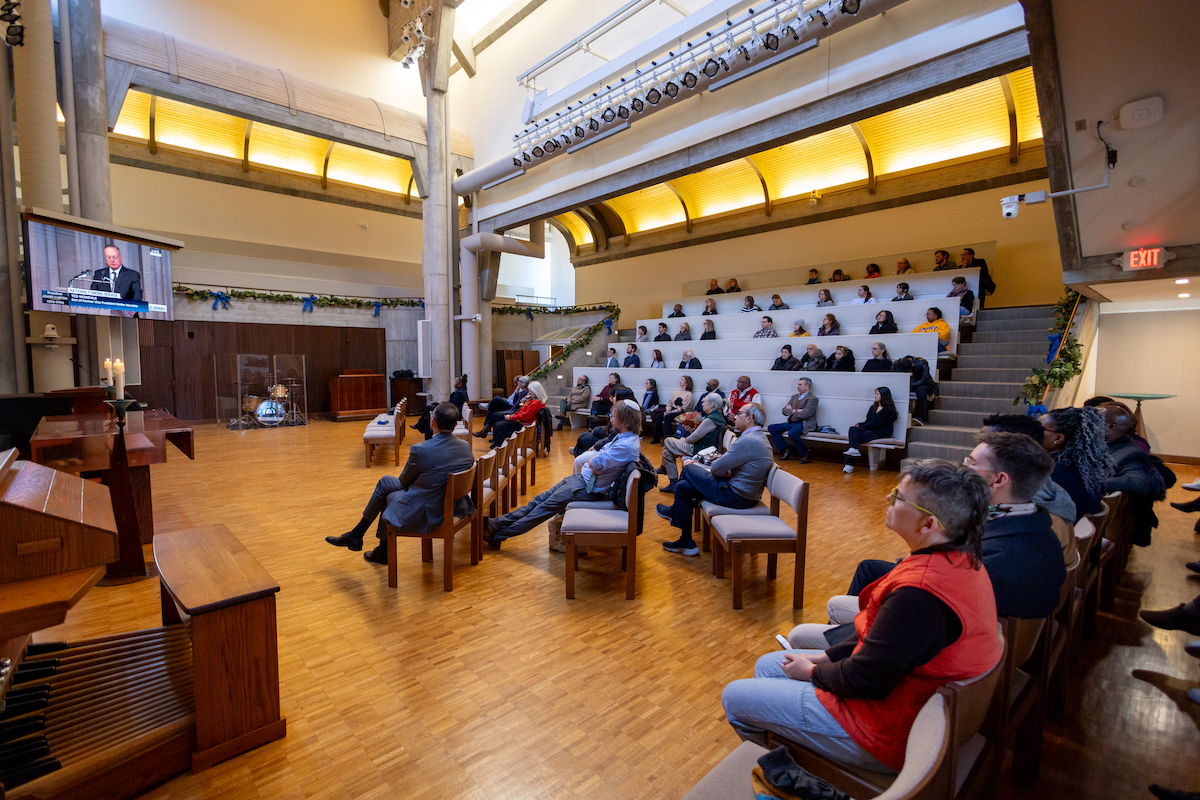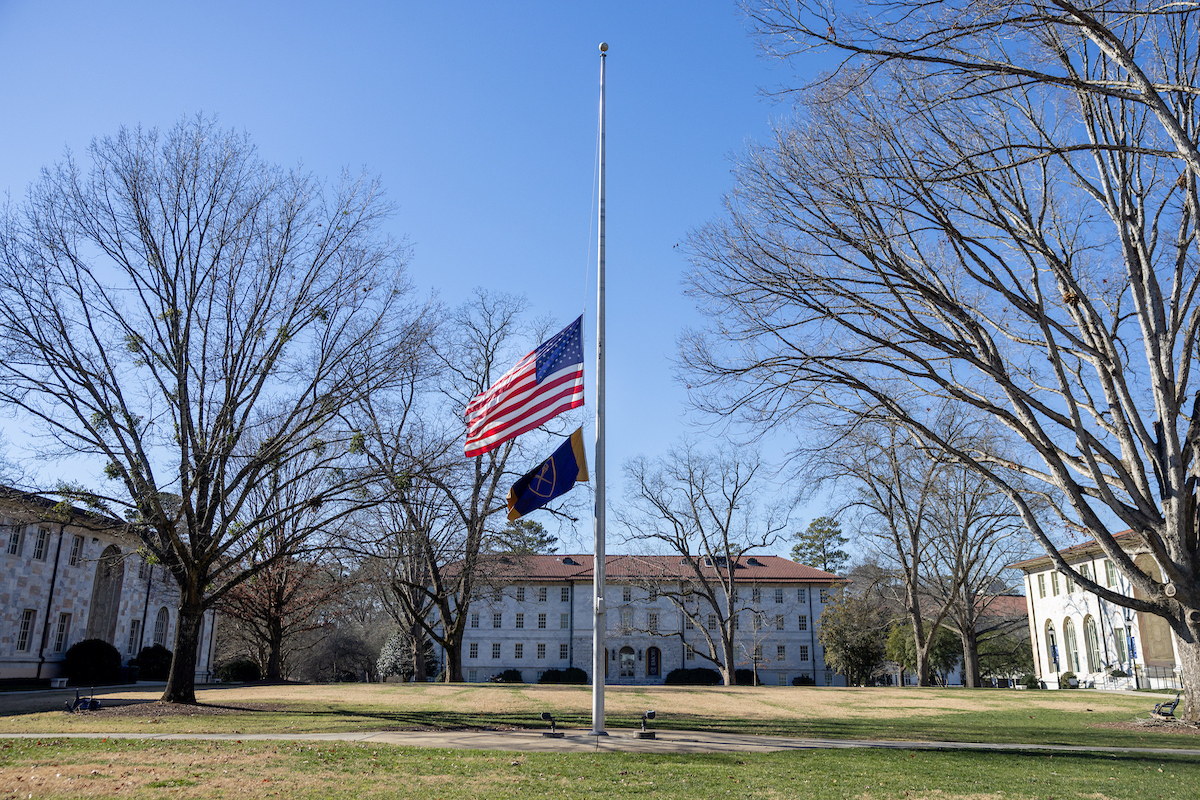The Emory community gathered in the university’s Cannon Chapel on Thursday to watch live coverage of the national funeral service for former U.S. President Jimmy Carter broadcast from the National Cathedral in Washington, D.C.
The 39th U.S. president and former Georgia governor served as an Emory University Distinguished Professor for more than four decades. During that time, he fielded questions from first-year students for 38 consecutive years at the annual Carter Town Hall and built a robust partnership between the university and The Carter Center, along with his late wife, Rosalynn Carter, who preceded him in death in 2023. He passed away Dec. 29 at age 100. President Jimmy Carter breaks ground for Emory’s William Cannon Chapel and Religious Center on Aug. 30, 1979, alongside Emory President James T. Laney. (AP Photo)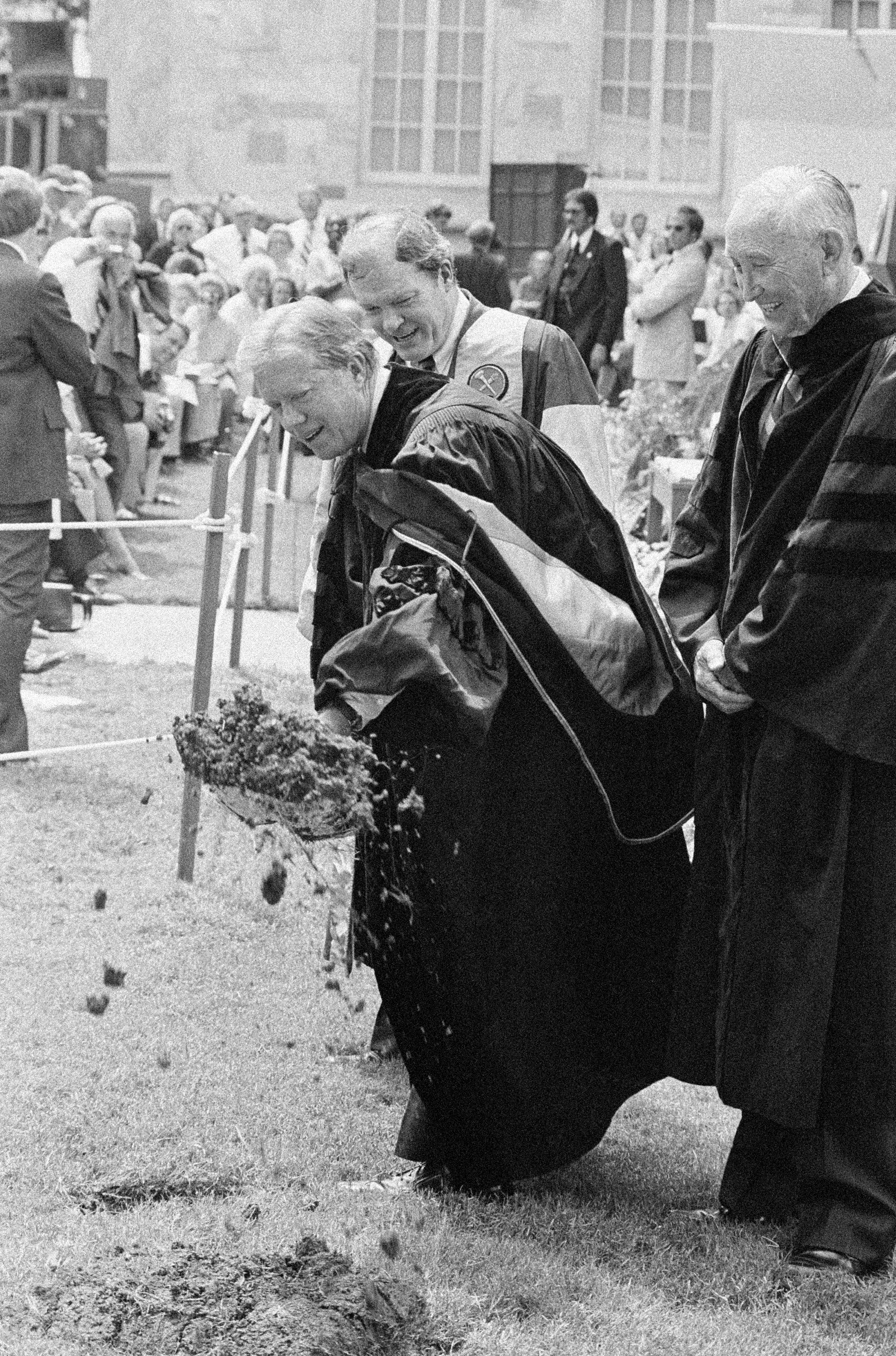
As attendees filed in, the Rev. Gregory McGonigle, dean of religious life and university chaplain, noted the significance of the chapel itself, which Carter helped break ground for in 1979 while serving as president.
“I feel like his spirit is very much infused in the building,” McGonigle said. “The mission of the chapel was not only that it should serve as a place for prayer and spirituality, but also for social justice and the arts. And that resonates with President Carter's many commitments around human rights.
“It’s also really interesting that his funeral is happening in the same month as Martin Luther King Day,” he added. “And just thinking about what it means to live a life of moral leadership that makes real change in society.”
When attendees at the Washington funeral service rose to honor Carter as his casket was carried into the National Cathedral at the start of the service, attendees in Cannon Chapel rose, too — honoring the life of a beloved professor whose presence on campus will be deeply missed.
Eagles at the National Cathedral
In Washington, one of the newest Emory Eagles, incoming first-year student Lindsay Taylor, was the featured soloist as the choir sang “The Road Home” before pallbearers brought the casket up the aisle and placed it on the catafalque.
Taylor was admitted to Emory in December through Early Decision I and will join the Emory College Class of 2029 on campus in the fall. Currently a senior at the National Cathedral School in Washington, D.C., she is a member of the Cathedral Choir.
“As an incoming Emory student, it was an incredible honor to sing at President Carter’s funeral,” she reflected afterwards. “The level of hard work and attention that went into this service demonstrated how deeply everyone cared for, and was inspired by, Jimmy Carter. I admire the way his unshakable beliefs brought so many people together.”
Emory alum Haley Barnett was among those pealing the National Cathedral bells at the conclusion of the service, as the hearse bearing Carter’s remains departed for Joint Base Andrews, Maryland, for his final flight home to Georgia.
Barnett graduated from Emory in 2001 with a bachelor’s degree in political science. She is now a member of the Washington Ringing Society, the group responsible for what are known as the change ringing bells at the National Cathedral.
“I have always remembered seeing President Carter at his town hall when I was a student at Emory,” Barnett said. “Today, it's a great honor, and a privilege, to be part of the group of 10 bell ringers ringing the Cathedral bells after the service."
Leading by example
At Cannon Chapel, the room was full of people Carter inspired and some who even shared personal connections with him and his family.
Celline Kim, an Emory PhD student in political science and 2023 graduate of Emory College, was influenced by Carter’s diplomatic work before she set foot on campus — and before she served as an intern for The Carter Center. His connection to Emory influenced her decision to apply to the university, and as a first-year student, she attended his final in-person Carter Town Hall address in 2019.
She smiled as she spoke of the talk’s final moments, when Carter was asked, “as a peanut farmer, what are your thoughts on almond butter?” (“I never have tasted it and I don’t intend to,” Carter deadpanned).
“I remember I was there looking at him in person and crying for some reason because I couldn't believe I was actually looking at him,” Kim said.
Nael McCarty, professor in the Department of Pediatrics in the Emory University School of Medicine, said he came to honor Carter’s embodiment of someone who led by example.
“I mean, when he was in his 90s, he was still out there building houses for Habitat for Humanity,” he said. “When you think of the notion of servant leadership, this guy just epitomized it.”
McCarty also recalled spotting people like Archbishop Desmond Tutu and the Dalai Lama on campus during the years that Carter taught at Emory. Tutu was a visiting professor in theology in 1999 and 2000; the Dalai Lama first visited Emory in 1987 and was appointed Presidential Distinguished Professor in 2007.
“That kind of stuff was happening because Carter was so engaged here,” McCarty said. “He just elevated us.”
Carter’s many important contributions to higher education include helping establish the Hubert H. Humphrey Fellowship Program, a Fulbright exchange that began in 1978 with a focus on assisting developing countries around the world. The program was named in honor of former senator and Vice President Hubert Humphrey, who served with President Lyndon B. Johnson.
Current Humphrey Fellow Sanja Sazdovska was present to watch the service. She is a state adviser for the North Macedonian government’s Ministry of Health, and her fellowship is with the Hubert Department of Global Health at Rollins School of Public Health. She appreciates how Carter supported international students, as well as his impact around the world.
“He invested in global health and in many, many undeveloped countries, so his humanity inspires all of us as public health experts,” Sazdovska said.
Family connections
For Mina Rhee, Emory associate general counsel and senior government and internal investigations specialist, viewing the service at Cannon Chapel was a way to honor not only Carter, but also her father, who died in 2016.
“My father was a Presbyterian minister who had met President Carter and also was an admirer of his devotion to peace and justice,” she said. “I really wanted to be [at Cannon Chapel] because my dad preached here, and he loved President Carter. I just felt like it was a nice combination to be here for the both of them.”
She also wanted to be with the Emory community “in a place that was very special to President Carter and a place that really appreciated all the work that he’s done throughout his life.”
Sheri Mann Stewart chose to wear a necklace to the gathering with a round silver pendant that read “1977,” the year Carter took office as president.
She said she had no doubt about where she wanted to honor President Carter’s life and legacy. “When I heard Emory was doing this event,” she said, “I knew I wanted to be here today.”
Her mother, Connie Stewart, served on Carter’s team throughout his political career, volunteered with The Carter Center and also worked at Emory during President James Laney’s administration. Sheri Mann Stewart is also a former instructor at Emory, and her younger son, Royce Mann, is currently a senior in Emory College and a Woodruff–Martin Luther King Jr. Scholar.
As a child and adolescent, Sheri Mann Stewart said, simply being around the diverse groups of people she observed in Carter’s orbit taught her about “racial equality and equality for women.”
She also recalled square dancing and cookouts with the Carter family and spending time in both the governor’s mansion and the Carter family home in Plains. “And Jimmy would carry my sons in his arms as he would give the tour of his home,” she said.
“There were just so many wonderful memories through the years,” she added, “and I thought this is the best place to represent those.”


